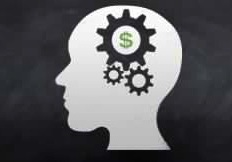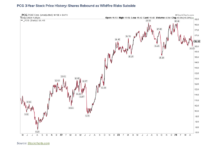 By Darren Miller Regret is an ugly word. Regret leads to remorse which manifests itself as we sit and stew about the action (or inaction) that we are regretting. The most common secondary emotion from regret is anger. “How could I be so stupid?!” “What was I thinking?!” and other such phrases are commonplace. In this post I’d like to focus on the inaction of trading that leads to regret as it tends to precede low probability trading.
By Darren Miller Regret is an ugly word. Regret leads to remorse which manifests itself as we sit and stew about the action (or inaction) that we are regretting. The most common secondary emotion from regret is anger. “How could I be so stupid?!” “What was I thinking?!” and other such phrases are commonplace. In this post I’d like to focus on the inaction of trading that leads to regret as it tends to precede low probability trading.
Kahneman and Miller did research on what’s called counterfactual thinking. Basically, individuals imagine the opposite of a current event and contemplate what might have happened. The psychological impact of contemplating a trade result that is better than the actual event itself causes feelings of frustration, regret and anger. We’ve all looked at charts and seen the trades that “got away” even though we knew about the potential. We’ve all sat and wondered why we didn’t take the trade, it’s easy to point out mistakes and criticize. If you remain stuck in this “what if” funk of counterfactual thinking then your future performance as a trader is in a vulnerable state.
My research over the last decade leads me to believe that it’s more damaging to a trader’s belief in their skills/system when a potential “homerun” is noticed after the fact. There’s a catch though. Either you have to have been in the trade and took profits (or a loss) already or you have a pending order. In other words, you are intimate with the stock from a monetary standpoint. Here’s an example, a stock is on my watch-list in which my system suggests a high probable setup is about to trigger. A bit of unexpected news comes out and the stock gaps up over my entry point by just enough that my system says to move on (but it’s only a few pennies!) and thus the opportunity is missed. The next week I’m looking through my watch-list and I notice the stock I barely missed had a nice 8% increase from my trigger, all without my participation. The thought of what could have been is more damaging to the psyche than say 3 max loss trades in a row.
That sucks, no question. If you allow this missed trade to seep into your thought process while running through what if scenarios, you are doing long-term damage. How you ask? The tendency is to bring doubt about your system which places yourself in a cognitive state where real damage can occur. The next time a stock barely gaps over your entry you chase it, instead of remaining disciplined and following your system, thinking it will perform the same way the missed trade did and gain 4% or more. However, this time the stock runs smack into supply and promptly falls back below your entry price. At this point you’re angry at yourself for chasing but still convinced the stock is going to run so you widen your stop in hopes of seeing this loser turn into a winner.
The next step in this disastrous scenario is that the stock makes a lower low and averaging in begins to occur. The once swing setup is now a long-term position that bleeds into other aspects of trading and life. The tendency is to become myopic to this one name and the sector it trades in as confirmation bias is now in high gear all because of a simple lack in discipline.
Other examples of counterfactual thinking that can damage the trading mindset include:
- Your system said to take a 1/4 position yet you play with the numbers as if you had a full position while expecting the same result.
- You fail to recognize the small loss you took on a position was your system managing risk in your favor.
- You decide to press your counter trend trade even though your system said to take profit all because some historical data suggested more movement in your favor.
- Rather than stick with the current risk management your system provides you get spooked by the media and headlines and tighten a stop.
- These are just a few of the numerous examples of the “what if” scenario. Don’t play the game!
Having a well defined trading plan and following it objectively with discipline goes a long way to avoid falling victim to counterfactual thinking. More importantly, you’ll be able to focus on current positions and setups while, over time, the thoughts of what could have been fade. If you trust your system and follow your trading plan then opportunities will present themselves again and again. Remain future oriented by not dwelling on missed opportunities. Doing so increases the odds in your favor of being a more profitable trader in the long run.
About Darren Miller: Darren is an accomplished academic, creator of the Market Awareness Profile (MAP), and founder of website Psychtrader where he uses a combination of cognitive psychology, psychometrics & brain training to help traders achieve their potential in the markets. Follow Darren on Twitter: @djmphd.
Any opinions expressed herein are solely those of the author and do not in any way represent the views or opinions of any other person or entity.








